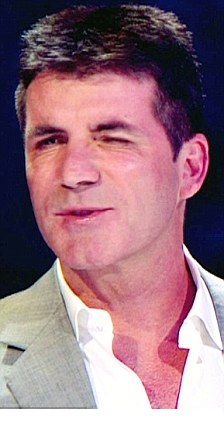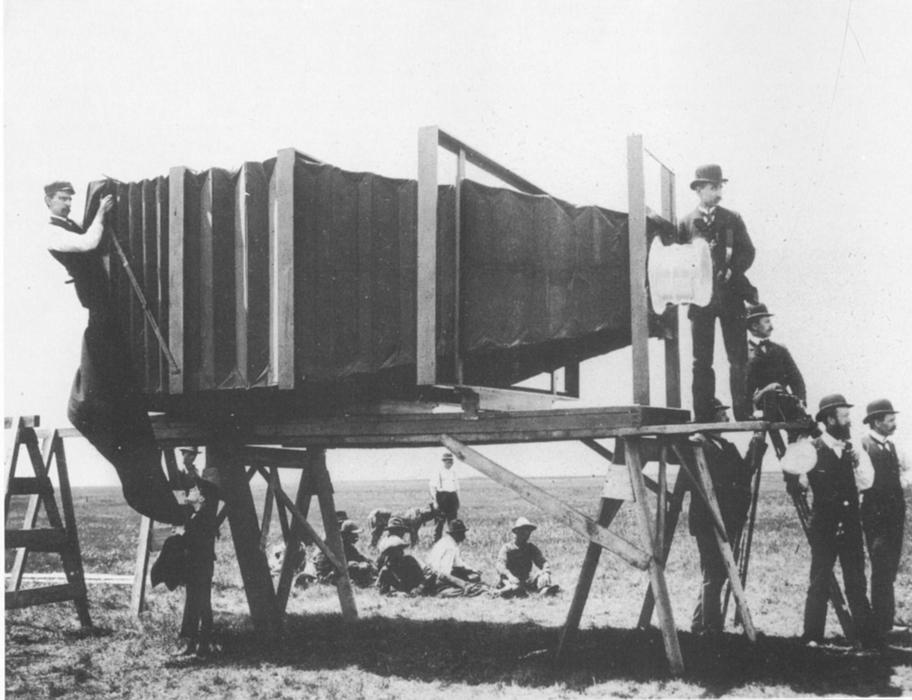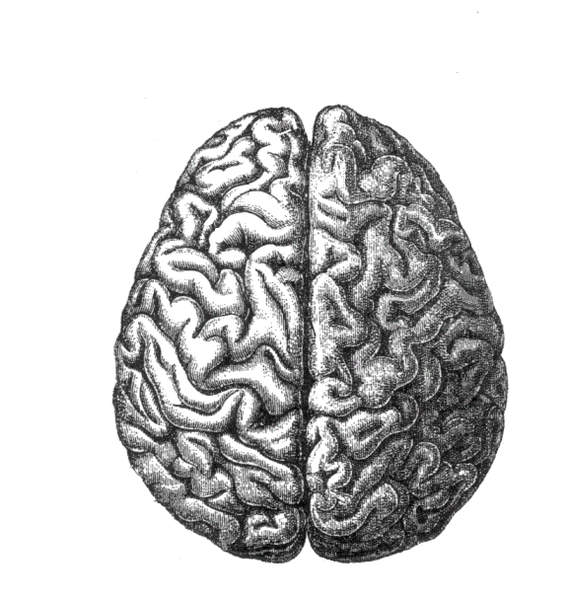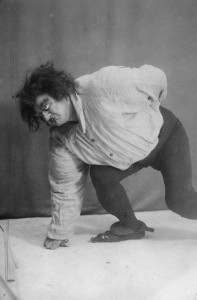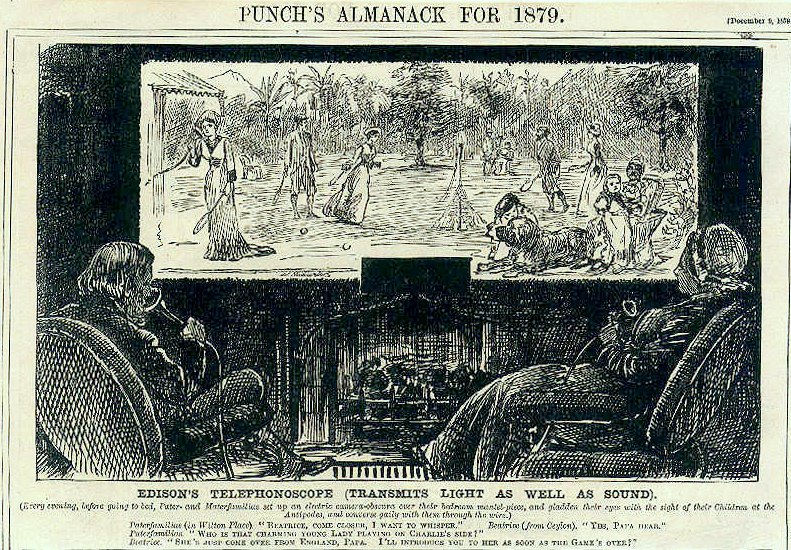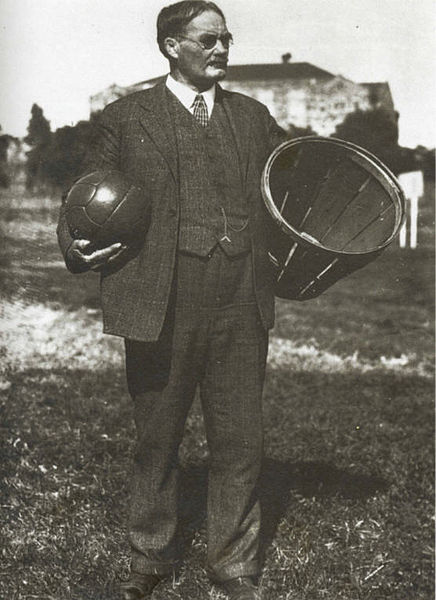Dan Snyder, the hapless owner of the Washington Redskins, dropped a lawsuit against the Washington City Paper earlier this month. He had originally claimed that a picture of himself with horns and a goatee in the manner of the devil, which ran with the article “The Cranky Redskins Fan’s Guide to Dan Snyder,” was a crude anti-Semitic slur. Snyder was rightly ridiculed for the suit, as the City Paper was clearly lampooning a terrible sports owner and intended nothing racist, and eventually he gave up the fight. One thing I haven’t read in response to his puzzling outrage (though others must have noted it) is that Snyder owns the American company with the single most racist name. If he owned the Washington Blackskins or Yellowskins, there is no way the NFL would allow such an outdated slur. But for some reason it’s permitted with the Redskins.
You are currently browsing the yearly archive for 2011.
Tags: Dan Snyder
The world was stunned when NASA announced last December that arsenic-based life existed on Earth, a finding that ran counter to everything we believed, suggesting a parallel life form was possible on our planet. Then the microbes hit the fan, and Felisa Wolfe-Simon, the young astrobiologist at the center of the discovery, was caught up in a firestorm. The opening of a Tom Clynes article on the controversy at Popsci:
“It is this mud, and the peculiar microbes in it, that have stuck Wolfe-Simon in the middle of one of the most extraordinary scientific disputes in recent memory. Last December, at a highly publicized NASA press briefing, Wolfe-Simon announced that her research team had isolated bacteria from Mono Lake, on the edge of California’s Eastern Sierra mountain range, that could subsist on arsenic in place of phosphorus, one of the elements considered essential for all life.
The research, financed mostly by NASA and published initially in the online edition of Science, jolted the scientific community. If confirmed, scientists said, the discovery would mean that this high mountain lake hosts a form of life distinct from all others known on Earth. It would open up the possibility of a shadow biosphere, composed of organisms that can survive using means that long-accepted rules of biochemistry cannot explain. And it would give Mono Lake, rather than Mars or one of Jupiter’s moons, the distinction of being the first place in our solar system where ‘alien’ life was discovered.
But within days, researchers began to question Wolfe-Simon’s methodology and conclusions. Many of them cast aside traditions of measured commentary in peer reviewed periodicals and voiced their criticism directly on blogs and Twitter. Then, as the conflict spilled into the mainstream, the scientific community witnessed something few would have predicted: meaningful public engagement over a serious scientific issue. For several days, at least, a good many water cooler conversations revolved around the metabolic capabilities of a Gammaproteobacterium.
Among academics, the debate devolved into something more vitriolic and personal. One researcher questioned whether Wolfe-Simon and her team were ‘bad scientists.’ Another called her work ‘science fiction.’ One blog post bore the title ‘Is Felisa Wolfe-Simon an Alien?'”
••••••••••
“A tiny microbe that can survive concentrations of arsenic that would kill all normal life dead”:
Tags: Felisa Wolfe-Simon, Tom Clynes
That former superpower Great Britain sent more unique visitors to Afflictor than any other foreign nation in September. The top 5 finishers:
- Great Britain
- Spain
- Netherlands
- Canada
- Germany
Tags: Simon Cowell
Frank Zappa profiled on the Today Show, 1993, the year he died.
Tags: Frank Zappa
A 1985 CBS News report about the 40th anniversary of two Japanese cities being destroyed by atom bombs during WWII.
Deer Meat/Scraps (Bethel)
Hunters…It is that time of year again..If you need to make room for this years hunt I will happily take any left over meat for you. With this season coming up I am also looking for any scraps after processing. I am able to use all parts of the deer except the hide.
••••••••••
“Bambi Meets Godzilla,” 1969:
Cool vintage 1971 NASA film links the history of knowledge gathering in America, from Benjamin Franklin to space travel.
Related post:
Gizmodo has a good post by Mat Honan which fleshes out what became obvious yesterday after Amazon’s dazzling Kindle Fire presentation: For the time being, Jeff Bezos will fill the void created by Steve Jobs stepping aside at Apple. Amazon has always been formidable, but a little blah. No more. An excerpt:
“And so when it was all over, the press, the great opinionator that drives purchasing decisions, was utterly flabbergasted. It was totally Jobsed, so to speak. Hypnotized and drawn in by the mind-blowing Bezos.
Much of that that is because of his passion. You can see it in his eyes, full of zeal and bordering on crazy. He isn’t just conning you, he believes in it. He feels strongly that he’s got the right product, at the right time. And so watch him and you will too.
And yet, it’s not just about his salesmanship. ‘Jeff Bezos is the new Ron Popeil‘ is a whole other story. He mirrors Apple’s former CEO in a host of other ways as well.
Most obviously, he’s a founder/CEO. Amazon is his. Yes, it’s a public company, but it goes where his vision takes it. It follows his mind into markets. Amazon is Jeff Bezos. Without him it would be adrift.”
••••••••••
“The instruction we find in books is like fire”:
Tags: Jeff Bezos, Mat Honan, Steve Jobs
In South Korea, Big Brother might actually be your big brother, or somebody’s big brother. The unemployed (and underemployed) have found a niche working as “paparazzi,” but not of the usual variety. Citizens are paid by the government to photograph anyone committing illegal acts. The opening of Choe Sang-Hun’s excellent New York Times article about the league of professional snitches:
“SEOUL, South Korea — With his debts mounting and his wages barely enough to cover the interest, Im Hyun-seok decided he needed a new job. The mild-mannered former English tutor joined South Korea’s growing ranks of camera-toting bounty hunters.
Known here sarcastically as paparazzi, people like Mr. Im stalk their prey and capture them on film. But it is not celebrities, politicians or even hardened criminals they pursue. Rather, they roam cities secretly videotaping fellow citizens breaking the law, deliver the evidence to government officials and collect the rewards.
‘Some people hate us,’ Mr. Im said. ‘But we’re only doing what the law encourages.’
The opportunities are everywhere: a factory releasing industrial waste into a river, a building owner keeping an emergency exit locked, doctors and lawyers not providing receipts for payment so that they can underreport their taxable income.”
Tags: Choe Sang-Hun, Im Hyun-seok
A 1979 CBS report about the potential of rollerskating as an Olympic sport.
While “softening of the brain” refers to the degeneration of tissue in the cerebellum, it seemed to be a catch-all phrase to explain a variety of different types of ailments in the 19th century. The following articles from the Brooklyn Daily Eagle focus on those afflicted by this vague, nebulous disorder.
••••••••••
“Hoadley D. Ives’ Precarious Condition” (March 11, 1894): “New Haven, Conn.–The condition of Hoadley D. Ives, the millionaire financier, who became suddenly ill yesterday, is very critical. Dr. Russell, his physician, says he has softening of the brain, and, while he is not now confined to his bed, his death is likely to occur at any moment. He is not violent to-day, but this morning insisted upon going out to feed his chickens. He is the wealthiest man in New Haven and is a leading director in two or three banks and has important business connections with almost every large enterprise in the city.”
••••••••••
“Death of Jacob Gius” (August 12, 1887): “About midnight Jacob Gius, of Jamaica, died from softening of the brain. He kept an oyster saloon in the village for twenty years, and was known to hundreds of Brooklynites. Domestic troubles and drink destroyed his mind.”
••••••••••
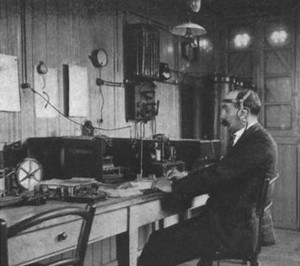
"Richard Waycott, a prominent telegraph operator and a well known resident of this city, died yesterday of softening of the brain."
“Death of Richard Waycott” (February 9, 1893): “Richard Waycott, a prominent telegraph operator and a well known resident of this city, died yesterday of softening of the brain. He was born in Canada but came to this country when a young man. He held several responsible positions for the Western Union Telegraph company until about a year ago, when he was attacked with the dread disease which necessitated his removal to a sanitarium. Mr. Waycott was past master of Commonwealth lodge No. 400, F. and A. M., and was a prominent figure in masonic circles. He was about 30 years old and leaves a wife and a child.”
••••••••••
“Insanity Consequent on Sunstroke” (February 10, 1882): “One of the unfortunate results of the reviews held here last Summer was the number of cases of sunstroke. It happened on one occasion when one division was called out to Prospect Park and the thermometer was high up in the nineties. The hot spell came suddenly, and the men were overdressed and they were speedily overheated and some of them succumbed to sunstroke. One of the unfortunates, Mr. Henderson, of the Forty-Seventh Regiment, has since developed one of the most dangerous consequences, namely, irritation of the brain, which manifests itself in insane delusions. It is sincerely to be hoped that he has fallen into the hands of an able medical practitioner, for under such circumstances only can a permanent cure be expected. The specific effect of overheating is to produce a slight cerebral irritation, which is not immediately allayed. Even under treatment the patient is for two years liable to the recurrence of symptoms–predisposed, in fact, to inflammation of the brain. But with intelligent watchfulness the worst effects can be avoided and permanent recovery accomplished. Sometimes, where the progress of the inflammation is not arrested, softening and sloughing away of the brain matter ensue, ending in paralysis and insanity.”
••••••••••
“Hanged an Insane Man” (July 3, 1893): “Reading, Pa.–It appears from the report of the physicians who made an examination of the brain of Buccieri, who was hanged on Thursday, that his mind was diseased, and that he was not responsible for the crime for which he was executed.
In the report they say that the third membrane was markedly congested; an area of softening was found in the left hemisphere, and the entire left lobe of the cerebellum was softened to such an extent as to diminish the tracings of the well known lines of the brain. In one portion they found at least a dozen cysts, some of them as large as a pea, and several calcareous deposits. This report has created quite a sensation.
It is now said that a number of those in charge of the prisoner were convinced that he was insane. The priests who attended his spiritual needs felt so.”
Tags: Buccieri, Dr. Russell, Hoadley D. Ives, Jacob Gius, Mr. Henderson, Richard Waycott
Jimmy Carter tries to reform Washington ethics in 1977. It didn’t take.
Tags: Jimmy Carter
Nissan and Swiss university EPFL are attempting to build cars that can read the thoughts of the driver. From Physorg:
“‘The idea is to blend driver and vehicle intelligence together in such a way that eliminates conflicts between them, leading to a safer motoring environment,’ said Jose del R. Millan, a professor at Swiss technological university EPFL who is leading the project.
The project uses ‘brain activity measurement, eye movement patterns and by scanning the environment around the car in conjunction with the car’s ownsensors’ to forecast the driver’s next move.”
••••••••••
“You got me so I don’t know where I’m going”:
Tags: Jose del R. Millan
A 60 Minutes report from 1978 about the burgeoning business of movie piracy.
Steven Pinker, author of The Stuff of Thought among other provocative books, provides a history of violence–and its gradual decline–at Edge. An excerpt about the mitigating effect the printing press had on violence:
“By the 18th century a majority of men in England were literate.
Why should literacy matter? A number of the causes are summed up by the term ‘Enlightenment.’ For one thing, knowledge replaced superstition and ignorance: beliefs such as that Jews poisoned wells, heretics go to hell, witches cause crop failures, children are possessed, and Africans are brutish. As Voltaire said, ‘Those who can make you believe absurdities can make you commit atrocities.’
Also, literacy gives rise to cosmopolitanism. It is plausible that the reading of history, journalism, and fiction puts people into the habit of inhabiting other peoples’ minds, which could increase empathy and therefore make cruelty less appealing. This is a point I’ll return to later in the talk.”
••••••••••
Pinker talks the same topic at TED:
Tags: Stephen Colbert, Steven Pinker
Marcel Duchamp, that famed finder of urinals, explains the concept of the ready-made. (Thanks Documentarian.)
Tags: Marcel Duchamp
Tags: Thomas Edison
Rats are now becoming cyborgs, getting brain implants, as reported by Linda Geddes in New Scientist:
“AN ARTIFICIAL cerebellum has restored lost brain function in rats, bringing the prospect of cyborg-style brain implants a step closer to reality. Such implants could eventually be used to replace areas of brain tissue damaged by stroke and other conditions, or even to enhance healthy brain function and restore learning processes that decline with age.
Cochlear implants and prosthetic limbs have already proved that it is possible to wire electrical devices into the brain and make sense of them, but such devices involve only one-way communication, either from the device to the brain or vice versa.
Now Matti Mintz of Tel Aviv University in Israel and his colleagues have created a synthetic cerebellum which can receive sensory inputs from the brainstem – a region that acts as a conduit for neuronal information from the rest of the body. Their device can interpret these inputs, and send a signal to a different region of the brainstem that prompts motor neurons to execute the appropriate movement.”
Tags: Linda Geddes, Matti Mintz
A week before the epic Frost-Nixon interviews were broadcast, David Frost speaks to Mike Wallace on 60 Minutes. Wallace didn’t think Frost had a prayer.
Tags: David Frost, Mike Wallace, Richard M. Nixon
David Stern had a great run as NBA Commissioner in the ’80s and most of the ’90s, but he should have been replaced long ago. The record TV ratings that the league experienced last season came about only because players defied his wishes. Stern, somehow the last person to not see how free agency turned baseball from a sport of millions into one of billions as player movement sparked fan excitement and made the game a year-round attraction, has long tried to maneuver the rules to make it much more palatable for NBA stars to spend their whole careers with one team. The fans insisted they wanted this, though it’s not the job of the consumers to know what they want. However gracelessly Lebron brought his talents to South Beach, the superteam concept created a ratings renaissance yet unseen in the post-Jordan era. And that was no thanks to the commissioner. Now even that coup is being threatened because of a needless lockout being spearheaded by Stern and his disingenuous owner poverty campaign.
Over at Grantland, Malcolm Gladwell tears through the commissioner’s lies, explaining how the business of basketball is mostly not about he game itself but the real estate and media deals attached to the sport. In stating his case, Gladwell makes an interesting point about the recent history of American wealth disparity. An excerpt:
“One of the great forgotten facts about the United States is that not very long ago the wealthy weren’t all that wealthy. Up until the 1960s, the gap between rich and poor in the United States was relatively narrow. In fact, in that era marginal tax rates in the highest income bracket were in excess of 90 percent. For every dollar you made above $250,000, you gave the government 90 cents. Today — with good reason — we regard tax rates that high as punitive and economically self-defeating. It is worth noting, though, that in the social and political commentary of the 1950s and 1960s there is scant evidence of wealthy people complaining about their situation. They paid their taxes and went about their business. Perhaps they saw the logic of the government’s policy: There was a huge debt from World War II to be paid off, and interstates, public universities, and other public infrastructure projects to be built for the children of the baby boom. Or perhaps they were simply bashful. Wealth, after all, is as often the gift of good fortune as it is of design. For whatever reason, the wealthy of that era could have pushed for a world that more closely conformed to their self-interest and they chose not to. Today the wealthy have no such qualms. We have moved from a country of relative economic equality to a place where the gap between rich and poor is exceeded by only Singapore and Hong Kong. The rich have gone from being grateful for what they have to pushing for everything they can get. They have mastered the arts of whining and predation, without regard to logic or shame. In the end, this is the lesson of the NBA lockout. A man buys a basketball team as insurance on a real estate project, flips the franchise to a Russian billionaire when he wins the deal, and then — as both parties happily count their winnings — what lesson are we asked to draw? The players are greedy.”
••••••••••
Pistol Pete plays H-O-R-S-E, 1977:
This classic 1963 photo profiles Hangar One at Moffett Federal Airfield in Northern California. The towering hangar looks like something that arrived mysteriously from both the future and the past, a man-made colossus that seems to be the result of some higher creature. One of the world’s largest free-standing structures, Hangar One is 200-feet tall and spans eight acres. It was built during the Depression to house the U.S.S. Macon dirigible, an aircraft carrier that was the biggest airship in the world when it launched in 1933. But damage caused by a storm in 1935 buried the Macon deep in the Pacific Ocean. Today, a restored Hangar One is used by NASA. From a 2006 Spiegel article about the wreck of the Macon:
“The tragedy unfolded unusually slowly for an aviation catastrophe: The crew fought to control the USS Macon for more than an hour. US naval officers threw fuel canisters overboard in an attempt to reduce the weight of their vessel. The canisters imploded on their way to the ocean floor. Meanwhile, the Macon — the largest rigid airship ever constructed in the United States — sank inexorably downward, the safety of the Moffett Field hangar just within reach.
The Macon hit the water surface only five kilometers (three miles) off the Californian coast, along the latitude of the Point Sur lighthouse near Monterey, on Feb. 12, 1935. The zeppelin broke apart and sank into the deep water. Two of the 83 crew members died — the low number of deaths is likely due to the fact that the Macon sank in slow motion.
Neither enemy fire nor sabotage was to blame for the giant airship’s doom (and a giant it was: longer than three 747 jets parked nose to tail). A heavy storm above the picturesque stretch of Californian coast known as Big Sur tore off the Macon’s vertical tail fin. The airship’s structural framework was so badly damaged that the Macon broke apart when it hit the water.”
••••••••••
Trial flight of the Macon, 1933:
Explaining the phsyics of the riderless bicycle. (Thanks Marginal Revolution.)
In 1970, Dick Cavett and Marshall McLuhan discussed the importance of TV image to politicians, using the Nixon-Kennedy debates as a starting point. Television image means little now, since media culture is 24/7, ubiquitous and HD, and everyone comes off poorly. FYI: The other guests on this Cavett episode were Truman Capote and football player Gale Sayers.
Tags: Dick Cavett, Marshall McLuhan



